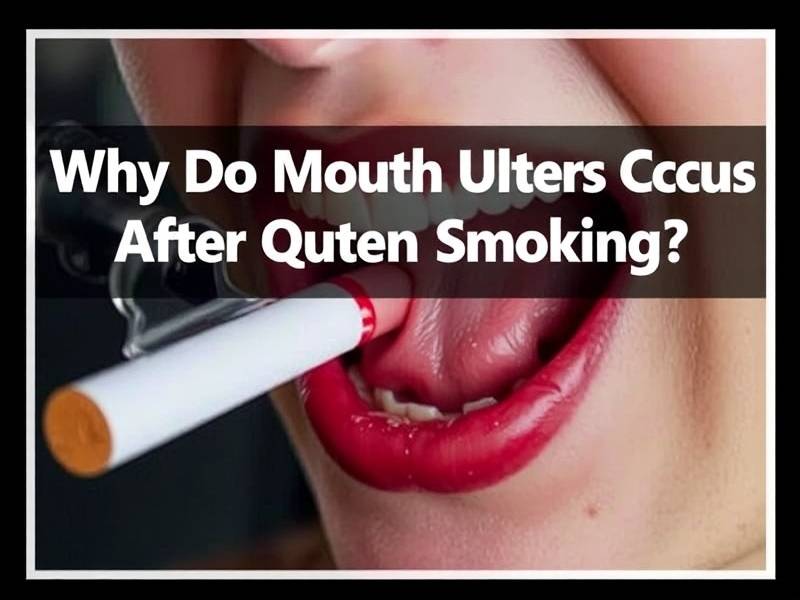Why Do Mouth Ulcers Occur After Quitting Smoking?
Understanding the Link Between Quitting Smoking and Mouth Ulcers
What Are Mouth Ulcers?
Mouth ulcers, also known as canker sores, are small, painful sores that develop on the inside of the mouth. They can appear on the tongue, cheeks, or gums and are often red with a white or yellowish center. While they are usually harmless and heal within a couple of weeks, their occurrence can be quite distressing.
The Connection to Smoking
It's no secret that smoking is harmful to your health. It's linked to various diseases and conditions, including oral health issues. One such issue is the development of mouth ulcers after quitting smoking.
Why Do Mouth Ulcers Occur After Quitting Smoking?
-
Nicotine Withdrawal

- When you quit smoking, your body goes through withdrawal symptoms as it adjusts to not having nicotine. Nicotine is known to have anti-inflammatory properties, and without it, your body might experience inflammation in different areas, including the mouth.
-
Changes in Saliva Production
- Smoking affects saliva production; when you stop smoking, there might be a temporary imbalance in saliva flow. Saliva helps keep the mouth moist and free from bacteria that can cause infections or irritations.
-
Increased Sensitivity
- Quitting smoking often leads to increased sensitivity in various parts of the body, including the mouth. This heightened sensitivity can make you more prone to irritations like those caused by rough teeth brushing or acidic foods.
-
Oral Microbiome Shift
- The act of quitting smoking can disrupt the balance of microorganisms in your mouth. This shift might lead to an overgrowth of certain bacteria or fungi that could cause ulcers.
-
Stress
- Quitting smoking is a significant life change that can be stressful for many people. Stress has been known to exacerbate mouth ulcers due to its impact on the immune system.
How Long Do They Last?
The duration of mouth ulcers after quitting smoking can vary from person to person. Some may experience them for a few days while others could have them for several weeks or even months after quitting.

Coping Strategies
- Maintain Good Oral Hygiene: Brush your teeth gently and use a soft-bristled brush.
- Avoid Irritants: Stay away from spicy foods, alcohol, and other irritants.
- Manage Stress: Engage in stress-reducing activities such as exercise or meditation.
- Stay Hydrated: Drink plenty of water to help maintain healthy saliva production.
- Consider Supplements: Some people find relief by taking supplements like vitamin B12 or zinc.
Conclusion
While it's common for mouth ulcers to occur after quitting smoking due to nicotine withdrawal and other factors related to oral health changes, they are typically temporary. By maintaining good oral hygiene and managing stress effectively, most individuals will find relief from these sores within a few weeks.
Remember that if you're struggling with persistent mouth ulcers or any other health concerns related to quitting smoking, it's always best to consult with a healthcare professional for personalized advice and treatment options.
